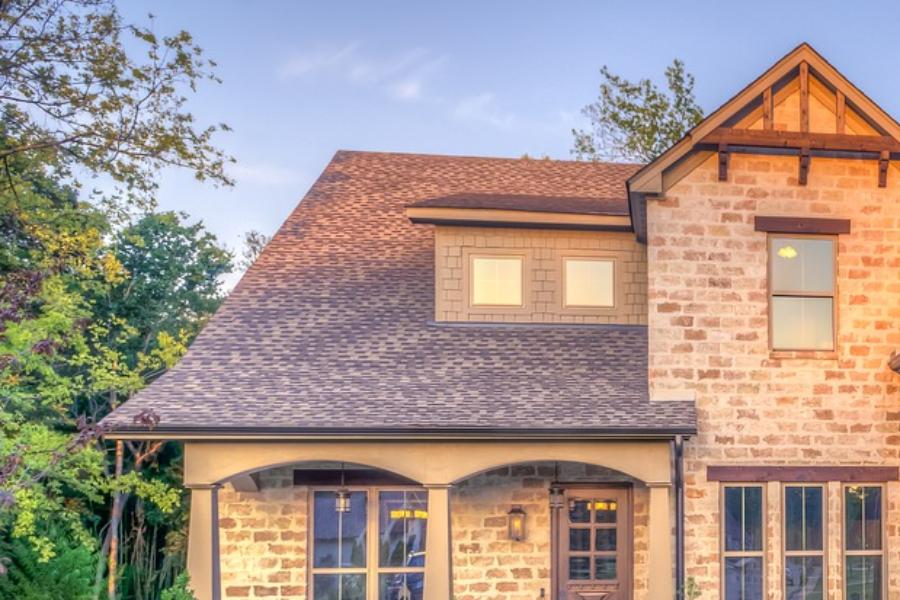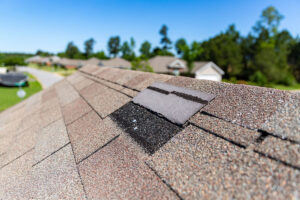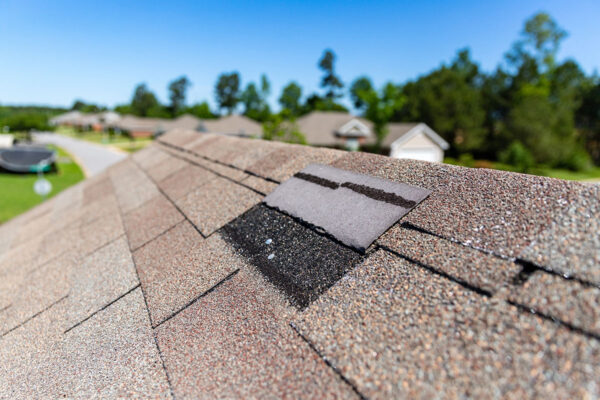If you roof is showing signs of damage, or if you’ve recently had a severe storm in your area that you suspect caused damage, you might be asking yourself should I repair or replace my roof? While different types of materials can be easier to repair than replace (for examples a shingle roof versus a metal roof), it can still be helpful to know what you’re looking for when you look at your roof, and to know when to call a professional.
Check Out the Damage
Before you decide on repairs or replacement, it’s good to have an idea of the damage.
NOTE: Climbing onto your roof yourself can result in additional damage to your roof or injury to yourself. A safe way to get a good look at your roof from the ground is to use a pair of binoculars.
Focus on the roof, checking from left to right, bottom to top. Check for signs of damage to shingles, such as shingles that are bent up or look loose. Also keep an eye out for signs of aging, just as cracks or curling shingles. Shingles should appear straight. If they’ve become crooked it may be the beginning of potential leaks.
Take a look at vents or other spots, such as where the roof meets a chimney or other areas of the wall. These areas can quickly become problem spots for leaks if they start showing damage. Take note of any newly exposed flashing as well.
Check the Attic
When evaluating your roof you should also check your attic. See if the wood and insulation there look in good condition. Pay special attention to where the trusses are and wherever wood meets the roof. Foam and insulation should be uniform, not warped. Warping can be a sign of water damage, indicating your roof may be leaking into the attic.
Consider Any Damage
If any damage you’ve found is specific to one small area, repairs may be enough to keep your roof in good condition for a while longer. If damage is widespread encompassing your entire roof, it is generally a good idea to consider replacing your roof. Widespread damage, such as that caused by hail or other severe storm conditions, is usually not worth the cost of extensive repairs over replacement, especially if your roof is already old. For some roofing materials, such as metal roofs, even contained damage can be difficult to simply repair.
Look Up Your Roof’s Age
If your roof is already 10, 20, or 30 years old, then it may be getting to the end of its expected lifespan and you will need to weigh your findings with that fact. As mentioned previously, widespread damage should be a quick indicator that you may need a roof replacement. When a roof is nearing the end of its lifespan, areas that need repair will often continue being a problem until the roof is replaced.
Contact a Professional Roofer
Not sure if repair or replacement is right for you? Contact your local roofing expert to request an inspection. An inspection is often a quick way to find out what your roof needs, and roofing professionals will be able to access the top of your roof without causing further damage.








